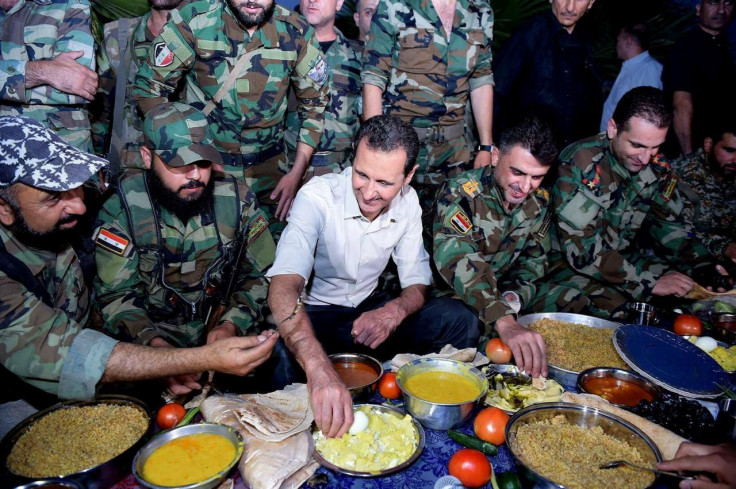Syria War News: UN Talks Assad Victory For First Time As Army, Rebels Fight ISIS

The United Nations has apparently dropped key language that referred to the removal of Syrian President Bashar Assad in its latest communication on the conflict in Syria and its goals for peace talks, indicating what may be a major victory for negotiators representing the Syrian government.
Regime change has been a major sticking point for rebel groups since massive anti-government protests turned into an armed insurgency against the state in 2011. Assad has said he would only step down before the 2021 elections if there was a "public consensus" among the Syrian people about his departure and government negotiators have rejected this as a point for negotiations with the opposition. The U.N. has traditionally included the phrase "political transition" to describe an outcome to the nearly-six year conflict in which Assad would step down or concede power to forces representing various opposition groups, but it was notably omitted when an official clarified a statement.
"I think, yes, you can use the word 'political transition'. It is going to be a focus I guess as it has been in the past," Yara Sharif, spokesperson for U.N. envoy Staffan de Mistura, initially said Friday at a U.N. meeting regarding Syria peace talks scheduled for Feb. 23 in Syria.
She then reportedly clarified her statement in a later email.
"This morning at the briefing I was asked about the intra-Syrian negotiations and whether the issue of political transition would be discussed," she said, according to Reuters. "For clarification purposes, please note that the negotiations will be entirely guided by (U.N.) Security Council Resolution 2254, which talks specifically about governance, a new constitution and elections in Syria."
De Mistura has been a vocal supporter of Assad's removal, but the Syrian oppositions' position has weakened significantly after deadly infighting among jihadist rebel groups and a series of strategic victories by the Syrian military backed by Russia and Iran. As of last month, the Syrian government is believed to be in control of around 65.5 percent of the country's remaining population as opposed to 12.5 percent under rebel control and another 12.5 percent held by Kurdish forces. The war has killed hundreds of thousands of Syrians and displaced millions more around the world.
Parallel peace talks between the government and rebels are being held by Russia, Iran and Turkey, which supports opposition forces, in Astana, Kazakhstan. Ankara joined the talks on behalf of the rebels after the Syrian military recaptured Aleppo, one Syria's commercial center and most populous city, in December and has since struck an uneasy truce with Moscow. Both Turkish-backed opposition forces and Russian-backed Syrian army have laid siege to the Islamic State-held town of al-Bab, considered a strategic gateway to the jihadists' de facto headquarters in Raqqa.
© Copyright IBTimes 2024. All rights reserved.






















